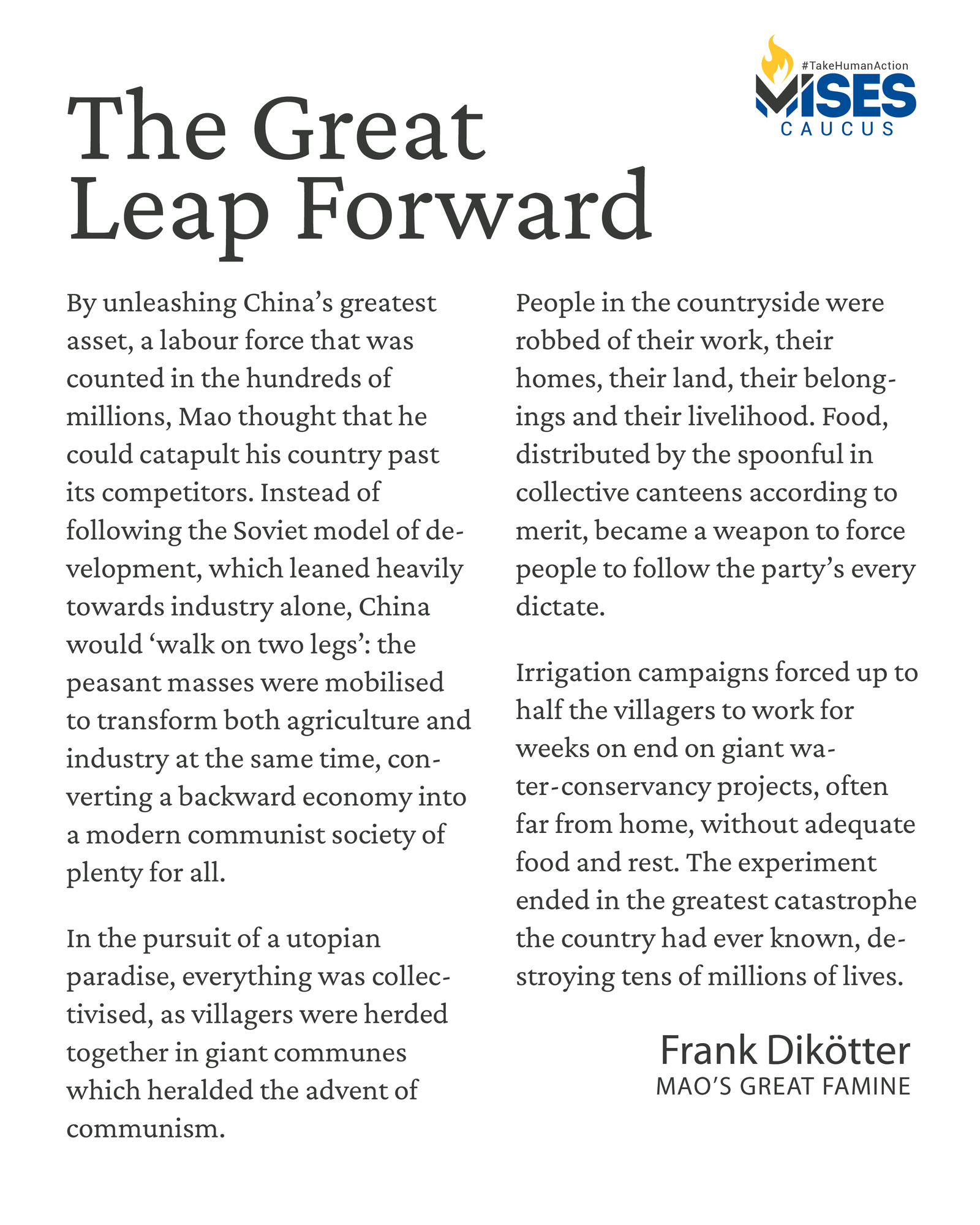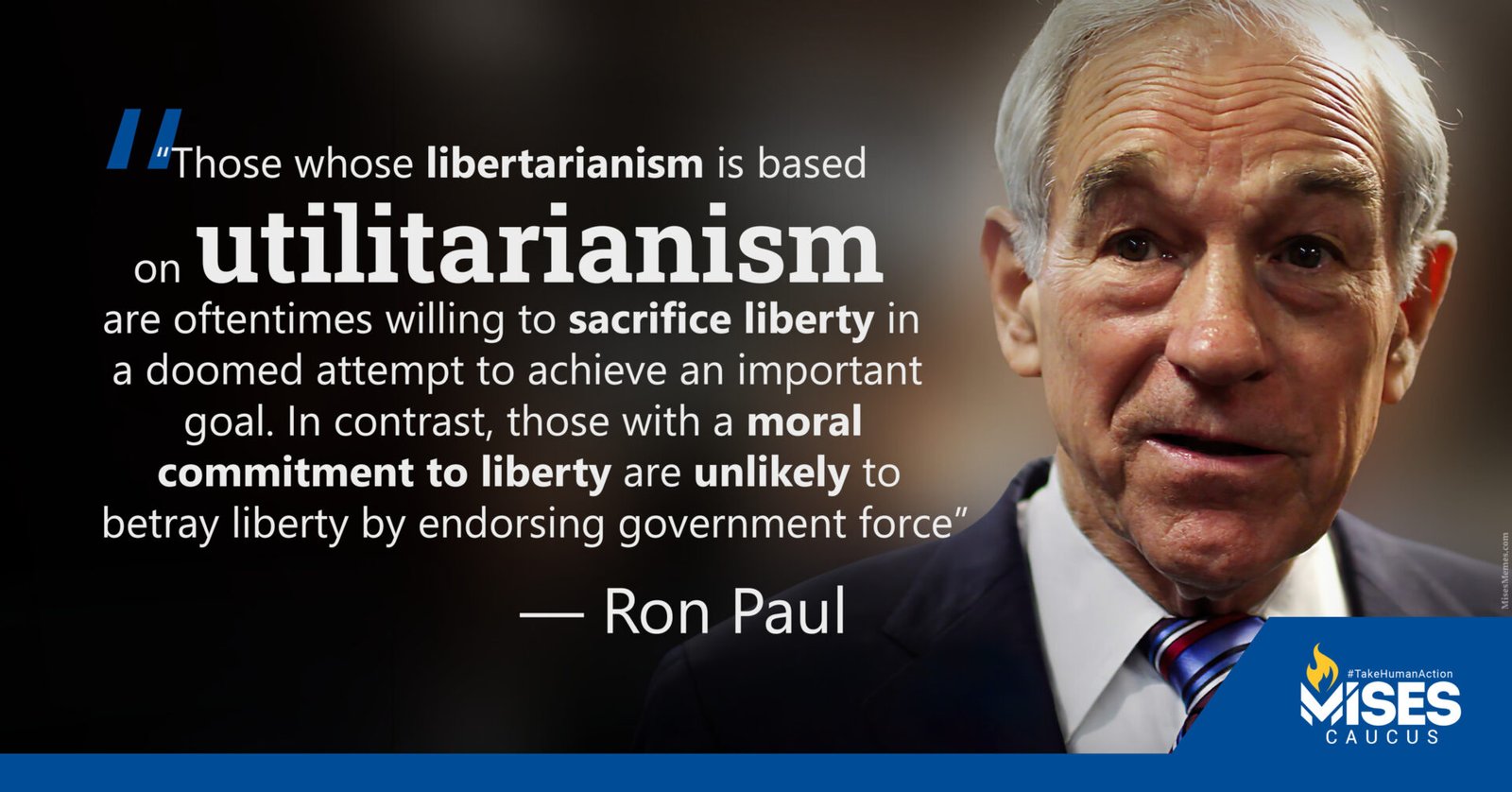The rules are simple: they lie to us, we know they’re lying, they know we know they’re lying, but they keep lying to us, and we keep pretending to believe them. —from the memoir of a young girl who grew up in the Soviet Union


The rules are simple: they lie to us, we know they’re lying, they know we know they’re lying, but they keep lying to us, and we keep pretending to believe them. —from the memoir of a young girl who grew up in the Soviet Union

In Kenya, the elephant population dropped from 65,000 to 19,000 even though elephant hunting was forbidden. In Zimbabwe, however, natives can claim, or homestead, elephants living on their lands. Natives can legally sell permits to hunt them. Zimbabwe’s elephant population grew from 30,000 to 43,000. People will protect the environment when they own it and profit from it. —Mary J Ruwart

By unleashing China’s greatest asset, a labour force that was counted in the hundreds of millions, Mao thought that he could catapult his country past its competitors. Instead of following the Soviet model of development, which leaned heavily towards industry alone, China would ‘walk on two legs’: the peasant masses were mobilised to transform both agriculture and industry at the same time, converting a backward economy into a modern communist society of plenty for all.
In the pursuit of a utopian paradise, everything was collectivised, as villagers were herded together in giant communes which heralded the advent of communism.
People in the countryside were robbed of their work, their homes, their land, their belongings and their livelihood. Food, distributed by the spoonful in collective canteens according to merit, became a weapon to force people to follow the party’s every dictate.
Irrigation campaigns forced up to half the villagers to work for weeks on end on giant water-conservancy projects, often far from home, without adequate food and rest. The experiment ended in the greatest catastrophe the country had ever known, destroying tens of millions of lives.
—Frank Dikötter, Mao’s Great Famine

This is a story of Zhao Xiaobai, then aged eleven, a soft-spoken woman with sad eyes. A few years before the Great Leap Forward her family left their native village in Henan to join a migration programme. Her father was made to break ice in the mountains but died of hunger in 1959. Her mother was too ill to work.
One of the local cadres came to the house, banging on the door to announce that slackers would not be fed. Another local bully came at night, pestering her mother for sexual favours. In the end, exhausted, her mother gave up and committed suicide.
Surrounded by strangers speaking an alien dialect, Zhao and her sister aged six ended up living with an uncle. ‘He was reasonable towards me, because I was old enough to go out and work. But he was not nice to my sister.
One day, as it was freezing, my sister came home empty-handed. So he beat her on the head, and she bled pretty badly.’
To protect her sister from her uncle’s abuse, Zhao took the six-year-old with her as she went to work like an adult, digging canals and ploughing fields. Here too she was unsafe. ‘Once, as I was working, I heard my little sister crying, and I saw somebody hurting her. Somebody was using sand balls to hit my sister, and she was surrounded by clumps of sand. Her eyes were covered in grit, and she just cried and cried.’
When asked how she had become the woman she is now, Zhao Xiaobai answered without hesitation: ‘Through suffering.’
—Frank Dikötter, Mao’s Great Famine

The FDA limits the information that drug companies can share with doctors and consumers. As many as 100,000 Americans died needlessly from heart disease each year that aspirin makers couldn’t advertise aspirin’s role in its prevention. —Dr. Mary J. Ruwart, Healing Our World

We pay 5 times as much for drugs than we should. Because the FDA is blamed when drugs affect some people adversely, the agency drags out the approval process. Drug development time and cost has increased greatly since the early 1960s without any improvement in either efficacy or safety. The true cost, however, is measured in lives, as tens of thousands of people die waiting for the FDA to approve breakthrough drugs. —Dr. Mary J. Ruwart, Healing Our World

The chemotherapy almost killed Thomas. The Navarros refused further treatments, only to find that the FDA wouldn’t permit Thomas to receive the gentler experimental treatment unless he had radiation too. In frustration, the Navarros went to Congress, as other patients have done, to plead for permission to use new drugs not yet approved by the FDA. After a year and a half of fighting, when Thomas was expected to live for only two more weeks, the FDA finally permitted him to have a “compassionate use” exemption.
By that time, Thomas had developed new tumors, called leptomeningial-sarcoma, from his initial chemotherapy. Nevertheless, the experimental treatment kept Thomas going for several more months. How much longer might Thomas have lived if we had honored his parents’ choice in the earlier stages of his disease?
—Dr. Mary J. Ruwart, Healing Our World

At what exact point, should one resist? When one’s belt is taken away? When one is ordered to face into a corner? When one crosses the threshold of one’s home?
How we burned in the camps later, thinking: What would things have been like if every Security operative, when he went out at night to make an arrest, had been uncertain whether he would return alive and had to say good-bye to his family? Or if during periods of mass arrests, as for example in Leningrad, when they arrested a quarter of the entire city, people had not simply sat there in their lairs, paling with terror at every bang of the downstairs door and at every step on the staircase, but had understood they had nothing left to lose and had boldly set up in the downstairs hall an ambush of half a dozen people with axes, hammers, pokers, or whatever else was at hand?
The Organs would very quickly have suffered a shortage of officers and transport and, notwithstanding all of Stalin’s thirst, the cursed machine would have ground to a halt!
If … if … We didn’t love freedom enough. We purely and simply deserved everything that happened afterward.
—Aleksandr Solzhenitsyn, The Gulag Archipelago

A young drug dealer once asked for a job on a public housing project in San Francisco. He approached Chris Albert, president of Willie Electric Company, hoping to get out of drugs and into legitimate work.
Unfortunately, because of the high wages dictated by the minimum wage law, the contractor couldn’t afford to take a chance on an unskilled man with no job record. The young man came back two days later and begged to be employed at a lower wage. “I won’t tell the law,” he promised.
“I want to make a better life for me and for my mom, and for my little sisters and brothers.” Unwilling to risk legal problems, the contractor reluctantly refused.
Two days later the young man was shot and killed. Maybe he’d be alive today if the minimum wage laws had not prevented him from working instead of being on the streets.
—Mary Ruwart, Healing Our World

Those whose libertarianism is based on utilitarianism are oftentimes willing to sacrifice liberty in a doomed attempt to achieve an important goal. In contrast, those with a moral commitment to liberty are unlikely to betray liberty by endorsing government force. —Ron Paul